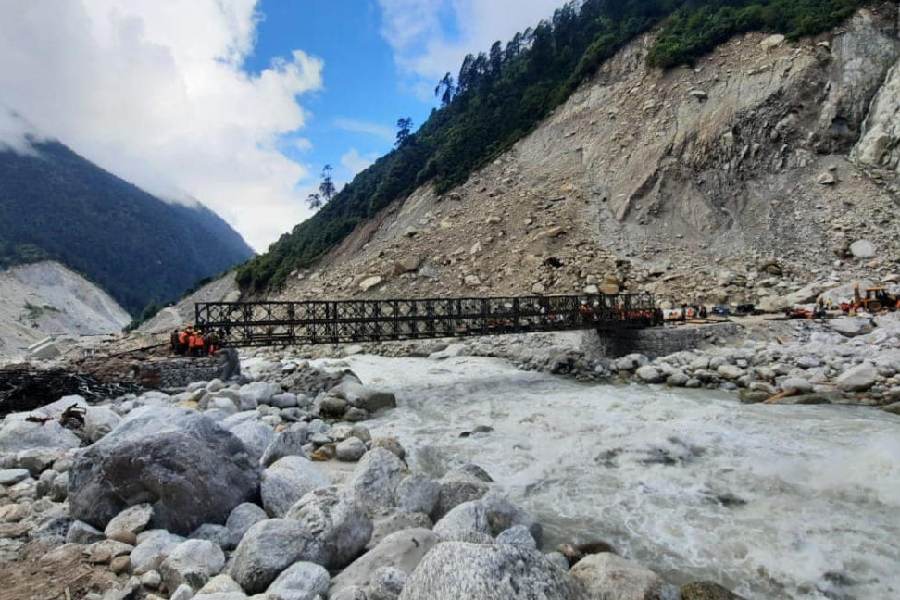Road connectivity to the China border has been restored in north Sikkim after almost a year.
The Border Roads Organisation, which started the construction of a Bailey bridge over the Lachen Chu in Sikkim’s Zema on August 24, completed it on Tuesday.
With this, the connection to north Sikkim’s most attractive tourist destination, the Gurudongmar Lake has also been restored.
Sources said the glacial lake outburst flood on the intervening night of October 3 and 4, 2023, from South Lhonak Lake, had swept away 16 bridges in the state — including six essential bridges in the Lachen valley in north Sikkim, apart from breaching a road network of some 25km.
Such was the force of the flood that it washed away the second largest dam in the country, the 1200MW Sikkim Urja Teesta–Stage III, just 62km downstream from the lake, rendering it beyond repairs.
“The flood had severed strategic lines of communication to China border along Lachen valley,” said a source.
Soon after the flood, the Border Roads Organisation (BRO) and the army constructed multiple Bailey bridges over the Teesta at Sanklang, Chungthang and Zeema areas in north Sikkim. “The BRO also took up the task to construct five kilometers of road and successfully restored vehicular connectivity to north Sikkim by April 8, 2024, through the traditional route,” said the source.
However, the connectivity was soon snapped.
“Unprecedented rainfall due to Cyclone Remal triggered a flash flood in Lachen Chu. The heavy boulders that rolled down the river along with the flow of the Lachen Chu river swept away the recently constructed Bailey bridge at Zeema on May 29, 2024,” said a source.
The strategic line of communication to the China border along the Lachen valley was again disrupted.
“Sensing the gravity of the situation, the BRO again started the construction of abutment from August 24, 2024, and the Bailey bridge was completed on Tuesday,” said a source.
The Gurudongmar area has remained cut off since last October.
With tourists unable to travel to north Sikkim, the tourism industry has been hit hard since October last year.
“The inflow of tourists has dried up since last October. North Sikkim is the most attractive destination for tourists and its closure has had an adverse impact,” said a hotelier from Gangtok.
Tourist flow also dried up because of disruption on NH10, the lifeline to Sikkim from Bengal, throughout the monsoon. On Tuesday, there was another breach of the highway.
“With the Puja season approaching, this disruption is likely to hit us hard as this is when we start getting bookings. When people hear of road connectivity problems, there is a tendency to ignore the place,” the hotelier added.
Kalimpong district administration stated they were doing their best to restore
the link.











